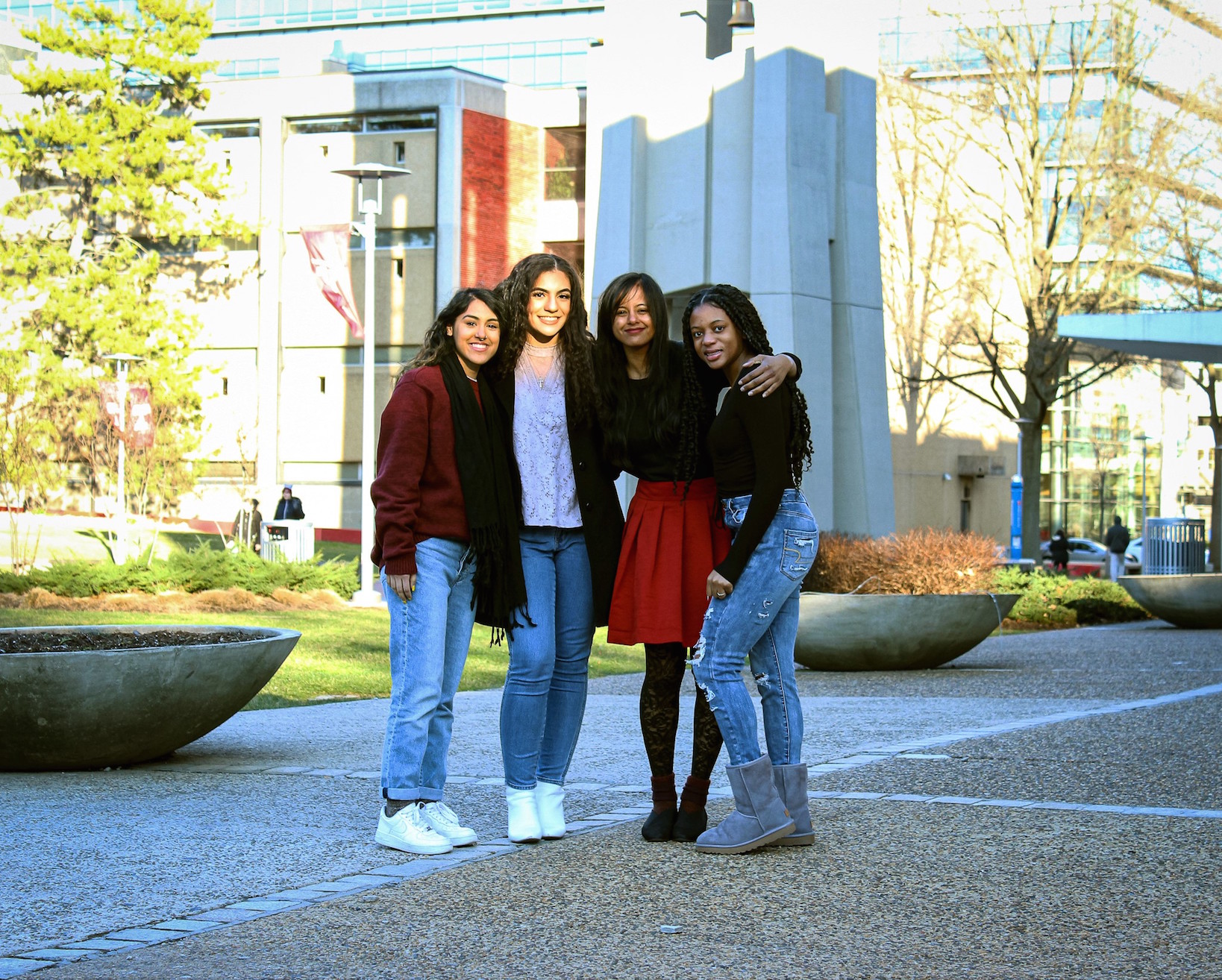In the United States, many social justice conversations attempt to center racial inequity. But in a country with such a diverse population, how meaningful are these conversations, and how global are their perspectives? An oft-forgotten nuance is that many splinter issues originate from the umbrella concern of racism. One of those problems is colorism, the prejudice against individuals with darker skin tones and racially associated features within their respective racial groups.
As an effort to confront colorism, Meghnaa Tallapragada, an assistant professor at Klein College of Media and Communication and three Temple University students created Project Colorism. The project examines colorism through the lens of those who have directly experienced its effects and aims to produce research that combats its impact.
Project Colorism originated as an idea by Tallapragada. As a social science researcher who grew up experiencing colorism in India, she found herself brainstorming ways to introduce and talk about the issue in an academic setting. Initially, she tackled her thoughts about colorism through guest lectures. Before she became a professor at Temple, she even visited the university to talk about colorism and meet students who were interested in what she had to say.
One of those students was Kynaat Mirza, a junior communication and social influence student who was a part of the on-campus social organization Cultural Connect. Mirza invited Tallapragada to speak at a Cultural Connect event where Tallapragada met Dilara Eran, a sophomore global studies and Spanish double major in the College of Liberal Arts. Eran reached out to Tallapragada in the fall expressing her interest in getting started on colorism research, and Mirza was contacted to work along with them. Mikayla Renwick, a sophomore communication and social influence student, met Tallapragada in the fall after another one of Tallapragada’s guest lectures and joined in on the opportunity. In January, the four launched Project Colorism.
Currently, the Project Colorism research team is conducting interviews — which can be found on the project’s website — with participants who have been personally affected by colorism to see how they cope with its complications. So far, the participants are students from various backgrounds, reflecting the fact that colorism is not specific to any one culture but is rather, as Tallapragada soon realized, a “human issue.” Highlights from these interviews are also showcased on Project Colorism’s Instagram page, which provides easy accessibility to the project for a wider audience.
“We thought there needs to be more of a conversation about this,” Tallapragada says. “I mean we talk about colorism saying ‘Oh, it’s there’ but let’s really dig down to [share] very specific stories so other people can see this. Even if nobody comments on it or says anything about it, even if one person sees it and feels sort of related to or comforted in some way, then we feel like we’ve done our job.”
Renwick says that besides the thoughtful and anecdotal material they contain, the interviews have helped her develop her research skills and know-how. She is conducting individual research about modern-day Blackface in popular media and realized that she can consider some of the findings from Project Colorism in her work.
“I kind of gained a love for research from this project because when you’re researching something you’re already passionate about it’s like you don’t want to stop,” she says.
Eran believes that the Project Colorism team’s collaborative spirit is key to the success of the project. Despite interruptions brought on by COVID-19, the team remains optimistic and busy, recently participating in an online conference with colorism awareness groups around the country.
“It's just been so crazy to have this new perspective, but also the chemistry of the research group...just goes together so well,” she says. “And it's additional work on top of all this stuff happening but it's work that I enjoy doing.”
Tallapragada is excited that Renwick, Eran and Mirza are developing new skills while spreading awareness of an issue that unfortunately unites them all in different ways.
“I really wanted them to be involved throughout the process because I wanted them to learn too, along with being interested in the cause. So now I feel very confident that if they ever have to go on and do some...research on their own, that they’re gonna do awesome,” she says.
In the future, the team hopes to further expand Project Colorism’s initiatives with the additional research, including a content analysis of online discussion boards focused on colorism, an experimental survey that measures participants’ attitudes about the trustworthiness of individuals based on their skin color and a possible research paper. But along with their many research goals, Mirza hopes to keep the educational and social justice potential of the project at its forefront.
“Colorism cannot be talked about without talking about race. It's completely interconnected,” she says. “And I've noticed outside of just the project, any time I see any conversations [on] Twitter or in my classes and stuff about race and identity, colorism always...connects back to [them] because it really influences people's perceptions of other people and themselves.”

